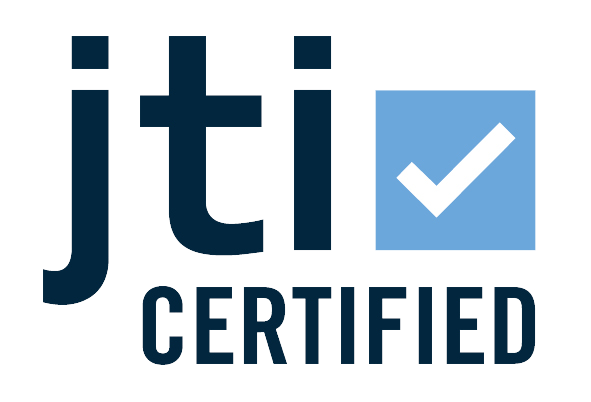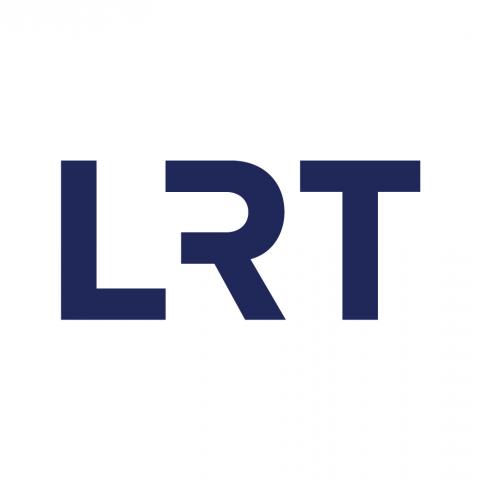
The Media Outlet has been independently certified according to the JTI Programme and CWA 17493:2019.

Certified by
Deloitte
Date of certification
14/07/2025
Contact details
477 Collins Street
3000 Melbourne
Australia

3. Public Service Media
3.1. Public Service Media Mission, Governance and Independence
The Media Outlet shall describe its public service mission and the legal instrument on which it is based. It shall describe its governance structure, including the role of all relevant governance bodies or organisations (for example, regulator, supervisory board, government/parliament role). It shall state how its financial income is generated and what proportion of its financial resources are totally or partially provided by public funds. It shall state if both external and internal governance measures guarantee its editorial independence.
Is the Media Outlet a Public Service Media?
YesWhat is the public service mission for which it is responsible?
"The LRT must collect and publish information about Lithuania and the world, introduce the public to the cultural diversity of Europe and the world, the foundations of modern civilization, consolidate the independence and democracy of the Republic of Lithuania, create, foster and protect national cultural values, develop tolerance and humanism, the culture of cooperation, thinking and language, enhance public morality and civic responsibility, raise the country’s ecological awareness. Diverse opinions and convictions must be reflected in radio and television programmes produced and/or disseminated (or broadcast) by the LRT (hereinafter: ‘LRT programmes’), and on the LRT website. Individuals with diverse perspectives shall have the right to participate in LRT programmes and on the LRT website and to express their views. LRT programmes and the LRT website must respect human dignity and rights, may not violate the principles of morality and ethics."
Is this governed by legislation?
YesWhat law or legal instrument specifies its role and responsibilities?
Provide a reference URL here.
What are the stakeholders with which it has formal relations, and what is the nature of the relationship?
How is income generated?
What portion of income is public funds?
See: LRT Financial Report 2024, https://apie.lrt.lt/api/uploads/finansine_ataskaita_2024_645f026915.pdf
Does the governance guarantee editorial independence?
YesState here in what way.
The LRT Law defines the main elements and procedures of governance, including management structures and the funding model, which provide for organisational and financial conditions that enable the public service broadcaster to carry out its mission independently.
The bodies of the LRT shall be the Council and the Director General of the LRT. The Director General who heads and represents the LRT is appointed through open competition for a term of five years and released from office by the Council in an open vote.
The duties of the Director General are not compatible with the elected or appointed positions in the Parliament (Seimas), Government, Radio and Television Commission of Lithuania and positions of political (personal) confidence civil service.
Persons having employment relationships with radio and television broadcasters as well as the managers and/or participants of radio and/or television broadcasters and of the information society media (legal persons), members of their management bodies, and the members of the Council must immediately resign from office after their appointment as Director General.
Auditors or employees of the audit firms who are involved and/or have been involved in auditing the LRT, if less than two years have elapsed since the completion of the audit, may not be elected as Director General.
The Director General of the LRT may not work in a business, commerce or any other agency, enterprise or organisation, nor may he or she receive any remuneration other than the salary fixed for his or her position as well as the remuneration for his or her research and pedagogical work and royalties for creative activities.
The Director General of the LRT may be dismissed before the expiry of his or her term of office on the grounds of a lack of confidence in him or her only if the Council substantiates the lack of confidence by reference to the public interest and if at least two-thirds of all the members of the Council vote in favour of such lack of confidence.
The Council represents the public interest. The Council must act for the benefit of the LRT and society as a whole and comply with laws, the Statutes of the LRT and other legal acts. The LRT Law stipulates that the Council shall be composed of 12 persons (prominent figures in society, science and culture) appointed for a 6-year term by different institutions: by the President of Lithuania, the Seimas (two of the Council members are proposed by the opposition parliamentary groups); the Research Council of Lithuania, the Education Council of Lithuania, the Lithuanian Artists’ Association, and the Lithuanian Bishops’ Conference. The members of the Council shall be appointed in accordance with the procedure laid down by the appointing authorities. The appointment procedure shall be published on the websites of the respective appointing authorities.
The current principle of forming the LRT Council does not allow the appointing institutions to appoint Council members for their own term of office and thus, protects LRT from the political influence of the ruling parliamentary majority. An LRT Council member may not be revoked before the expiry of his/her term of office except in the cases provided by the Law.
If a person appointed as a member of the Council is a member of a political party or political organisation, he/she must suspend his/her membership therein for the period of his/her membership in the Council.
The following persons may not be members of the Council: members of the Seimas or the Government, municipal councillors, members of the European Parliament, members of the Radio and Television Commission of Lithuania, a mayor, the Inspector of Journalist Ethics, members of the Commission of Ethics in the Provision of Information to the Public, civil servants of political (personal) confidence, the Director General, Deputy Director General or any other employee of the LRT, persons having employment relationships with radio and/or television broadcasters, as well as managers and/or participants of radio and/or television broadcasters and of the information society media (legal persons), members of their management bodies, auditors or employees of the audit firms who are involved and/or have been involved in auditing the LRT, if less than two years have elapsed since the completion of the audit.
The LRT Law sets the funding model for the LRT. It stipulates that the amount of the LRT's allocation from the state budget each year is equal to 1% of the personal income tax revenues and 1.3 % of the excise duty revenues of the state budget and municipal budgets received the year before the last. The level of appropriations allocated to the LRT must not be lower than the state budget appropriations allocated to the LRT in 2019.
This funding model, where the budget is directly linked to the taxes collected by the State and is automatically calculated as a fixed share of the collected taxes, has been in place since 2015 and ensures LRT’s independence not only from political influence but also from the economic lobbying by advertisers. The LRT is not allowed to air commercial advertising.
The implementation of the provisions of the EMFA’s Article 5 into national legislation led to the amendments to the Law on the Lithuanian National Radio and Television, which added additional safeguards to the independence of the public service broadcaster and brought more transparency to its governance model.